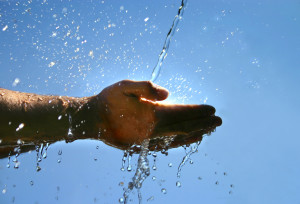How Safe is Your Drinking Water?

With the recent discoveries of lead in Portland Public Schools drinking water and the September 15th discovery at the University of Oregon, it becomes a reminder for us all to ensure that our groundwater supply is providing healthy and safe drinking water.
According to the Oregon Health Authority, 90 percent of the population of the state draws all or part of their water supply from groundwater, which amounts to about one billion gallons of groundwater every day. Approximately 23 percent of Oregonians use domestic or private wells as their main source of water. For these well owners it is especially important to watch out for common types of contamination that might affect their water supply. These types of contamination include:
- Improper storage or disposal of hazardous substances
- Improper use of fertilizers, animal manures, herbicides, insecticides, and pesticides
- Chemical spills
- Improperly built and/or maintained septic systems
- Improperly abandoned wells (these include water wells, groundwater monitoring wells, and wells used in cleaning contaminated groundwater)
- Poorly sited or constructed water wells
The Portland Water Bureau is currently working to finish a study looking at the issues of lead in Portland’s drinking water, but major changes won’t be possible until 2022. Private well owners can begin taking steps to protect their groundwater today by being more mindful of how they care for their wells and dispose of hazardous materials.
More information on how to keep your well clean and safe can be found by visiting the National Groundwater Association website.
Sources Consulted:
http://www.opb.org/news/series/lead/portland-corrosive-water-study-epa-timeline/
http://www.ngwa.org/Events-Education/groundwater-day/Pages/default.aspx
http://hosted.ap.org/dynamic/stories/O/OR_UO_LEAD_OROL-?SITE=ORLAG&SECTION=STATE&TEMPLATE=DEFAULT
http://www.ngwa.org/Events-Education/groundwater-day/Pages/default.aspx
